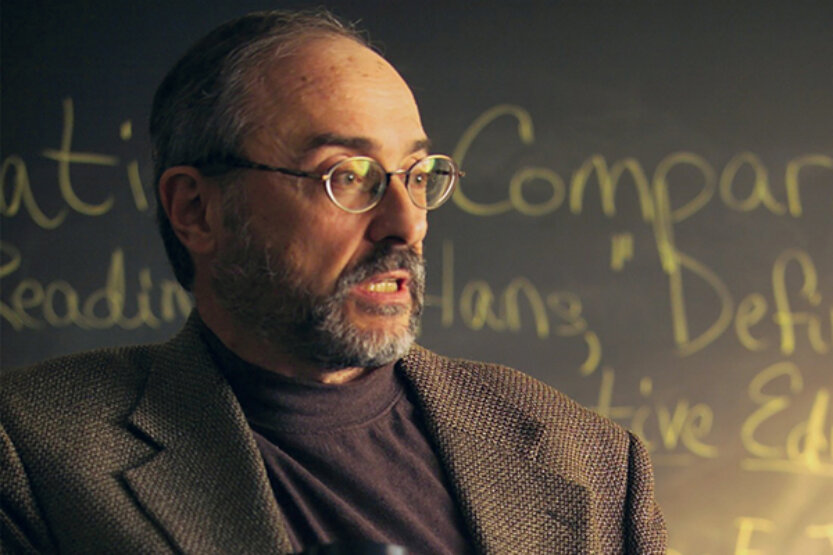My Alma Mater: From Apprehension to Delight
 As one of the few Jewish students on campus during the late 1950s and early ’60s, Erwin Epstein found a spiritual and fraternal home at Illinois’ Hillel, which is now celebrating its centennial. (Image Courtesy of Erwin Epstein)
As one of the few Jewish students on campus during the late 1950s and early ’60s, Erwin Epstein found a spiritual and fraternal home at Illinois’ Hillel, which is now celebrating its centennial. (Image Courtesy of Erwin Epstein) My senior year at Illinois was filled with apprehension and delight.
It started with apprehension, in the form of a question: What does one do with a philosophy degree? I had chosen that major out of love, not thinking about a career―that is, until the reality of earning a living struck me hard.
During this period of sudden panic, I happened to come across an article in Time magazine about a new, two-year Master of Arts in Teaching program. Financed by the Ford Foundation, it would prepare liberal arts and sciences undergraduates to become “scholar-teachers.” Two universities, Harvard and the University of Chicago, were chosen to host the program. I applied to UChicago, and on the strength of my liberal arts education at Illinois, I was accepted and granted a full fellowship. After receiving my degree, I went on to earn a Ph.D. at UChicago, in a field that uses history, philosophy and the social sciences to analyze international issues in education. All of this was built on the splendid academic foundation I was given at the U of I.
So, I eventually answered my question about what one can do with a philosophy degree.
But during my senior year, I had other reasons to be apprehensive. My most unhappy memory from college happened that year in the Hillel building, where Ron Robbins, ’60 LAS, and I shared an apartment. One night, the phone rang, and an anonymous caller yelled antisemitic death and bomb threats. I immediately called the police, who sent a car to guard the building.
The next morning, I went outside and found a huge, white swastika painted on the outer wall of the chapel. This made front page news in The Daily Illini. In the aftermath, Hillel received calls from several Christian campus groups expressing their dismay.
By contrast, one of my happiest experiences also took place at Hillel. Folk singer and political activist Theodore Bikel gave an enchanting spring concert there that was warmly received. After the concert, I and several other Hillel students were invited to a reception for Bikel at a Jewish faculty member’s home. I had an important exam the next day, but it didn’t matter. My fellow students and I were swept up in the enthusiasm for Bikel and eagerly accepted the invitation.
In the faculty member’s living room, Bikel sat, played his guitar and sang, with the students sitting at his feet and listening with rapture through most of the night. We were, in a sense, his stage, reminiscent of when, as a little boy in Vienna, Bikel would put a newspaper at his feet as a surrogate stage whenever his father wanted him to perform. It was one of the most exhilarating moments of my life.
Such are my memories of my final year at Illinois―from the despicable to the sublime.
Erwin Epstein is professor emeritus in the Center for Comparative Education at Loyola University Chicago.
Share your campus experience! Email: illinoisalumni@uillinois.edu

